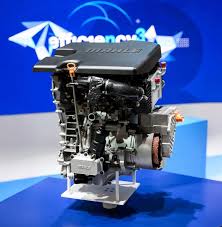
Breaking News
 New Study Obliterates the "Millions Saved" COVID Shot Myth
New Study Obliterates the "Millions Saved" COVID Shot Myth
 The Meltdowns Over Jimmy Kimmel Show Pulled from Air by ABC
The Meltdowns Over Jimmy Kimmel Show Pulled from Air by ABC
 Mike Rowe: This is HUGE story, and it's not being covered
Mike Rowe: This is HUGE story, and it's not being covered
Top Tech News
 This "Printed" House Is Stronger Than You Think
This "Printed" House Is Stronger Than You Think
 Top Developers Increasingly Warn That AI Coding Produces Flaws And Risks
Top Developers Increasingly Warn That AI Coding Produces Flaws And Risks
 We finally integrated the tiny brains with computers and AI
We finally integrated the tiny brains with computers and AI
 Stylish Prefab Home Can Be 'Dropped' into Flooded Areas or Anywhere Housing is Needed
Stylish Prefab Home Can Be 'Dropped' into Flooded Areas or Anywhere Housing is Needed
 Energy Secretary Expects Fusion to Power the World in 8-15 Years
Energy Secretary Expects Fusion to Power the World in 8-15 Years
 ORNL tackles control challenges of nuclear rocket engines
ORNL tackles control challenges of nuclear rocket engines
 Tesla Megapack Keynote LIVE - TESLA is Making Transformers !!
Tesla Megapack Keynote LIVE - TESLA is Making Transformers !!
 Methylene chloride (CH2Cl?) and acetone (C?H?O) create a powerful paint remover...
Methylene chloride (CH2Cl?) and acetone (C?H?O) create a powerful paint remover...
 Engineer Builds His Own X-Ray After Hospital Charges Him $69K
Engineer Builds His Own X-Ray After Hospital Charges Him $69K
 Researchers create 2D nanomaterials with up to nine metals for extreme conditions
Researchers create 2D nanomaterials with up to nine metals for extreme conditions
Jet-ignition motor multiplies electrified vehicle range past 800 miles

German component builder Mahle took a short break from pushing out compact, torque-maximizing ebike motors to reveal a small, high-efficiency multi-fuel engine-generator it says is ready to deliver hybridized driving ranges up to 838 miles (1,350 km), about double that of some of today's longest-range battery electric vehicles.
Mahle views its range-extenders as far more than simple independent add-on, looking at them as one component in a holistic driving architecture in which smaller batteries can replace larger ones while still alleviating, rather than intensifying, range anxiety. Those batteries will then lead to cost, weight and material savings, creating an attractive selection of affordable, efficient new-energy vehicles with more overall range, simple and flexible refueling options, and zero-emissions local driving.
Company CEO and board chairman Arnd Franz believes range-extended electric vehicles to be an important part of the auto market's future and notes that Europe is lagging behind major global markets like China and North America. In his IAA Mobility press conference speech, Franz noted that political complications are holding Europe back from embracing range-extended electric vehicles as an emissions-cutting solution.
A hot topic of late, the European Union's 2035 target for a 100% reduction in car and van CO2 emissions will mean the end of the road for combustion engines in new vehicles. The European auto industry has identified that goal as infeasible and has been ramping up pressure on the European Commission, the EU's primary executive body, to withdraw the complete ban and instead work to encourage other emissions-cutting options beyond just battery-powered EVs, including hybrids, hydrogen engines and sustainable fuels.
"Mahle is doing its homework and working on the decarbonization of road traffic in all areas of technology," Franz said at the show. "Europe must now follow the other major world markets and allow competition between all technologies in its CO2 regulation. This is not just a matter of climate protection but also of Europe's competitiveness."
Those words came several days before a meeting between European Commission President Ursula von der Leyen and key EU auto industry executives last Friday. Following the meeting, Von der Leyen agreed to fast-track the review of the 2035 ban it had originally planned for 2026. It will now undertake that review before the end of 2025.

 The Moral Decay of Debt
The Moral Decay of Debt

